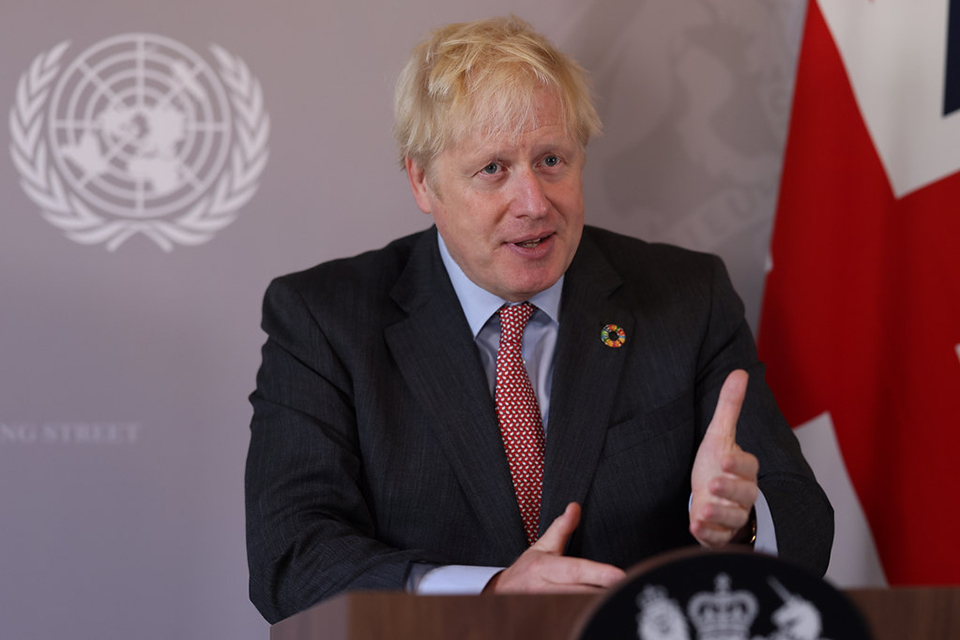UK pledges £571m to equitable COVID-19 vaccine access scheme

UK Prime Minister Boris Johnson has told the UN General Assembly that the UK will donate £571 million ($735 million) to the COVAX scheme aimed at distributing COVID-19 vaccines fairly around the world.
The lion’s share of that total – around £500 million – will be “for developing countries to protect themselves,” said the PM in a recorded speech given to the assembly, delivered just before the number of deaths due to coronavirus topped 1 million worldwide.
Johnson said the COVID-19 pandemic had caused countries to have divided approaches to mitigating the threat, “with cheque book wars on airport tarmacs as nation has vied with nation for a supply of PPE”, but that this can’t continue in the context of vaccination against SARS-CoV-2.
“The health of every country depends on the whole world having access to a safe and effective vaccine, wherever a breakthrough might occur; and…we will do everything in our power to bring this about,” he asserted.
The UK will also increase its funding of the World Health Organization (WHO) by 30% to £340 million over the next four years, helping to offset the loss of funding that resulted from President Trump’s decision to pull US funding to the agency, claiming it was under China’s influence.
More than 170 countries have signed up to COVAX, which is spearheaded by the WHO, the European Commission and France and aims to help develop, manufacture, and distribute coronavirus vaccines evenly across the world.
All participating countries, regardless of income levels, will have equal access to these vaccines once they are developed, it pledges.
COVAX is aiming to make 2 billion doses of vaccine available by the end of next year, although it is not yet clear how that can be achieved given that high-income countries are estimated to have reserved more than half of the world’s global production capacity.
The US, China and Russia have so far opted out of participating in the project, after signing their own bilateral deals with vaccine makers, something the UK has also done at scale. Critics find it hard to reconcile how safeguarding national vaccine stocks can be balanced with equitable access within the COVAX framework.
“Vaccine nationalism will prolong the pandemic, not shorten it,” said WHO director-general Tedros Adhanom Ghebreyesus earlier this month whilst calling for countries to work collaboratively to end the pandemic by sharing vaccine supplies “strategically and globally.”
That’s a view shared by UN secretary-general Antonio Guterres, who said recently that vaccine nationalism “is not only unfair, it is self-defeating – none of us are safe, until all of us are safe.”
Only by controlling the virus around the world will it be possible to open up the global economy and put an end to the economic hardship that is on the rise and will likely claim a much higher toll in lives and livelihoods than COVID-19 itself, says the WHO.
Johnson argued during his presentation that “after nine months of fighting COVID, the very notion of the international community looks tattered.
“We know that we cannot continue in this way. Unless we unite and turn our fire against our common foe, we know that everyone will lose,” he said.
At last count there were 40 COVID-19 vaccines in clinical trials, according to the WHO, including 10 in the final stage of human testing, although none have so far proved they are safe and effective enough to be rolled out.













